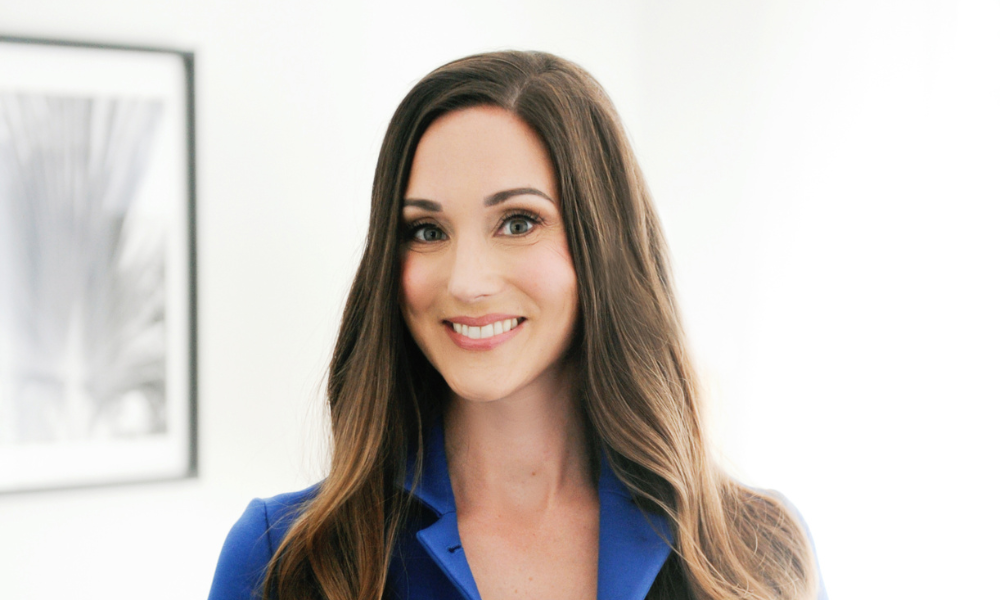Advisor talks about how her skillset, and her comfort with vulnerable conversations, can help her clients as they plan to leave or receive a legacy

When we talk about the $1 trillion intergenerational wealth transfer currently ongoing in Canada, we sometimes gloss over the messy, painful emotion of it all. This transfer comes with loss, baby boomers are passing on and while their heirs may be inheriting a windfall, they’re losing parents and grandparents. Planning for that transfer means forcing a conversation about the two topics nobody likes to talk about: death and money.
Chantal McNeily is having those conversations. The investment and wealth advisor with RBC Wealth Management built her career around intergenerational transfers. She is herself the daughter of an investment advisor and began her career taking over the business of another successful female advisor. She has worked to deliver continuity, in her family and in the families of the clients she serves. When guiding her clients through the immense challenges of the intergenerational wealth transfer, she leads with empathy and vulnerability, skills that are commonly associated with female advisors.
“I lead with my own stories. Some of my youngest childhood memories were my parents sitting down with us before they went on vacation and walking us through where the will was, where the insurance was, etc,” McNeily says. “As I got older, I never wanted to talk about what to do if something happened to my parents, but I always had comfort knowing they were very prepared. All I had to do in my darkest moment was find this document in the dresser of my childhood bedroom at my parents’ house.
“In the situation I went through with my family, when my father became incapacitated very rapidly, that preparation still provides peace of mind.”
That document, McNeily says, empowered her when she struggled to think clearly through a haze of worry and grief. Because it laid out her father’s wishes, it gave McNeily and her mother a sense of control. Because the rapidly declining health of a loved one removes all sense of control, the legacy plan and organization was something that McNeily and her mother could hold onto.
McNeily takes her clients through that story. These are often successful business owners who have faced significant challenges in their lifetimes, yet McNeily says they are terrified by the idea of death and inheritance. She can use her own example of how planning can give real comfort to everyone even in a worst-case scenario.
While empathy and vulnerability are not exclusive to any gender, McNeily notes that many female advisors tend more towards the planning side of wealth management work, while men tend to focus more on investments. That planning requires better emotional management and relies more on those ‘soft’ skills. As the industry evolves away from pure investment management, McNeily thinks that advisors need to continue to develop those skills.
Learning to lead with vulnerability is tough for anyone. McNeily admits that even a few years ago she wouldn’t take such a vulnerable approach. It takes bravery, and confidence that you understand the client well enough, and have earned their trust and respect such that showing vulnerability won’t come back at you.
Getting your clients to open up is another key part of that work. With a clientele of business owners, McNeily can speak to her clients about both the financial and the emotional importance of their businesses to themselves and their families. That can be challenging, especially with Baby Boomer clients who aren’t necessarily known for their emotional openness. However, starting from the business can help create that open dialogue and create a wealth transfer plan that takes the emotion of it all into account.
The scale of the intergenerational wealth transfer will require empathy and vulnerability on the part of all advisors, regardless of gender. However, this is an area where McNeily believes more women can establish themselves as leaders in the industry. She has spent much of her career working for more women to enter and rise in the wealth management industry, believing in the importance of female voices. She thinks that as more women step up, the industry needs to help give them the confidence to succeed.
“Where I see the difference between genders is nothing with literacy and knowledge,” McNeily says. “It's everything to do with the confidence a woman has to take that first step and actually invest in the market and having that person beside them being like, ‘do you trust me? All right, I got your back. And we're going to do this together.’… it's not like the process or the investment strategy that needs to be customized to a woman. It is the way we communicate that needs to be adjusted to appeal to the value system that a woman is focused on.”



